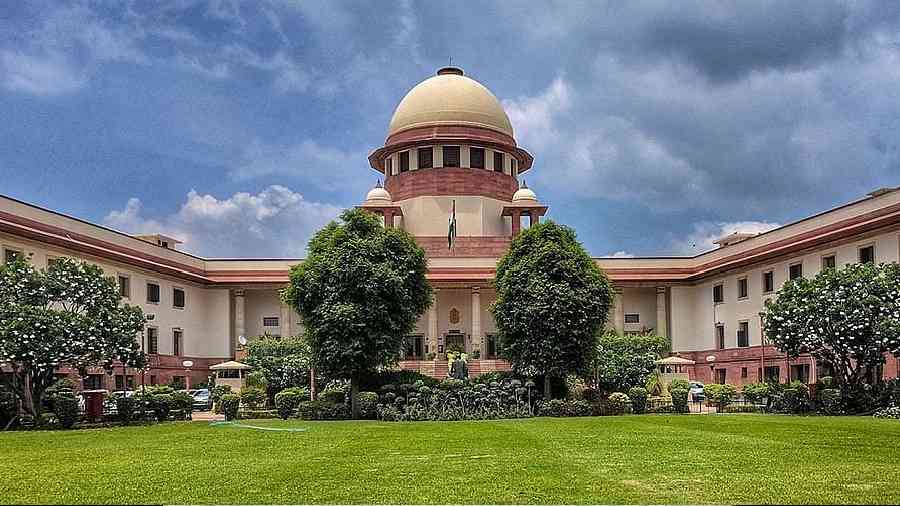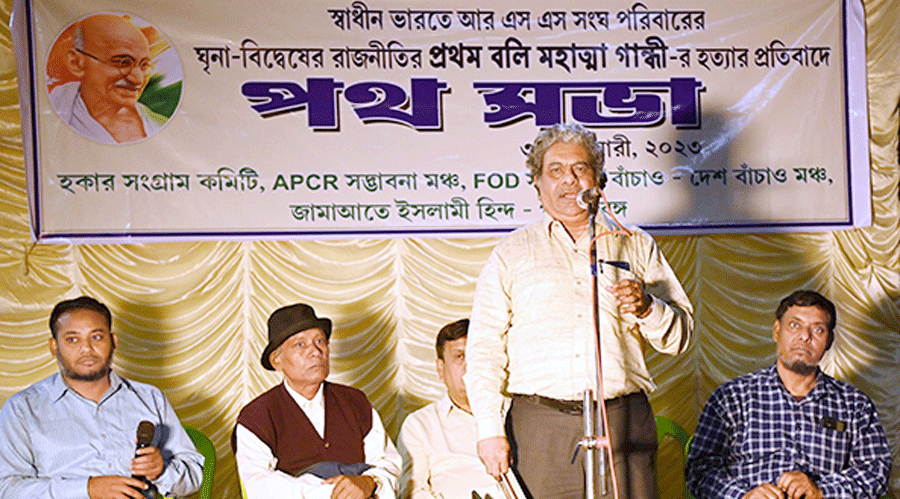The State “must be guided by the sublime realisation that Bharat is a secular nation committed to securing fundamental rights to all sections as contemplated in the Constitution”, the Supreme Court said in a written order that was uploaded on Friday.
It added: “The history of any nation cannot haunt the future generations of a nation to the point that succeeding generations become prisoners of the past.”
With these observations, the court rejected Ashwini Upadhyay’s public interest plea to restore the original names of ancient cultural, historical and religious places that had purportedly been rechristened by the Mughals.
The bench of Justices K.M. Joseph and B.V. Nagarathna had on Monday come down heavily on Upadhyay while orally observing that the country cannot be “kept on a boil” and Hinduism “does not allow bigotry”.
The written judgment contained several more trenchant observations.
“The golden principle of fraternity which again is enshrined in the Preamble (to the Constitution) is of the greatest importance and rightfully finds its place in the Preamble as a constant reminder to all stakeholders that maintenance of harmony between different sections alone will lead to the imbibing of a true notion of nationhood bonding sections together for the greater good of the nation and finally, establish a sovereign democratic republic,” the judgment, written by Justice Joseph, said.

The golden principle of fraternity which again is enshrined in the Preamble (to the Constitution) is of the greatest importance and rightfully finds its place in the Preamble as a constant reminder to all stakeholders that maintenance of harmony between different sections alone will lead to the imbibing of a true notion of nationhood bonding sections together for the greater good of the nation and finally, establish a sovereign democratic republic
Supreme Court
“We must constantly remind ourselves that courts of law, as indeed every part of the ‘State’, must be guided by the sublime realisation that Bharat is a secular nation committed to securing fundamental rights to all sections as contemplated in the Constitution.
“The present and future of a country cannot remain a prisoner of the past. The governance of Bharat must conform to rule of law, secularism, constitutionalism of which Article 14 stands out as the guarantee of both equality and fairness in the State’s action.
“We are, therefore, of the view that the reliefs which have been sought for should not be granted by this court acting as the guardian of fundamental rights of all under Article 32 of the Constitution of India and bearing in mind the values which a court must keep uppermost in its mind — the Preamble gives us clear light in this direction.”
The bench referred to several earlier apex court judgments, including the 13-judge ruling in the Kesavananda Bharati case that had held secularism to be a part of the basic structure of the Constitution.
That 1973 judgment had observed: “India is a secular State in which there is no State religion.... The secular and federal character of the Constitution has (been) found to be among the ‘basic elements of the constitutional structure’….”
Justice Joseph also referred to the nine-judge ruling in S.R. Bommai and Others vs Union of India and Others, 1994, which too said that secularism was a facet of the basic structure of the Constitution.
Justice Joseph cited the apex court judgment in M.P. Gopalakrishnan Nair vs State of Kerala, 2005, which declared that
“(i) The Constitution prohibits the establishment of a theocratic State. (ii) The State is not only prohibited to establish any religion of its own but is also prohibited to identify itself with or favouring any particular religion. (iii) The secularism under the Indian Constitution does not mean constitution of an atheist society but it merely means equal status of all religions without any preference in favour of or discrimination against any one of them.”











